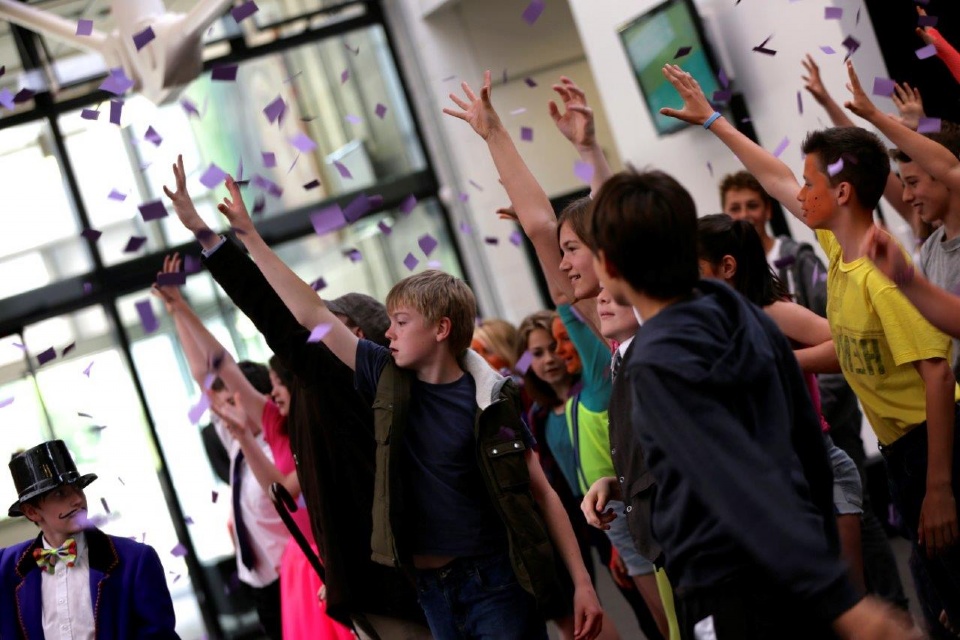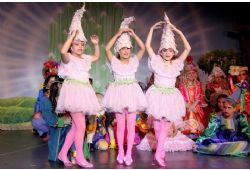The main goal in parenting is to raise your
children to be competent adults, correct? Preparing them to live in the real
world sounds like a trite simplification of a parent’s purpose in life, but
with a quick glance over at the kid glued to his IPad, finger in nose, juice
spilled on his jeans—we see how difficult this preparation really is.
The “real world” has no shortage of
challenges for your little princess (who right now is crying because she missed
her favorite TV show) to face. If “all the world’s a stage”, as the Bard put
it, then it seems only actors can be equipped to navigate its intricacies.
No, I’m not saying all your children should
become actors. That was a metaphor. We need many other “roles” to be filled on
our world stage; we need electricians, doctors, lawyers, cashiers, politicians,
nurses, candlestick makers and more! The problem is this; I would wager that
success in none of these fields is possible if a child isn’t taught early on to
think critically and with an open mind.
Children have so many natural tendencies
toward empathy and imagination and these tendencies are slowly weeded out by
the traditional education system because they’re not deemed practical. Those of
us who become artists then spend years in training trying to rediscover and
build up those tendencies from scratch. Aside from empathy and imagination,
another important trait is confidence and being assured of oneself. How many
children do we know suffering from crippling shyness?
When a child takes a performing arts class
and is given the chance to perform on stage, he or she will be acquiring
valuable skills that can be transferred to every profession out there. The
memory it takes to learn pages and pages of text? Little Amanda is
well-prepared for her Bar exam. The vocal exercises on projection and
articulation? Shy Bruno will be a fantastic orator and win an election someday.
The relaxation techniques and breathing exercises worked on in acting class
will ensure that your child will not faint when taking an exam because she
forgot to breathe (this does happen).
Ensuring that our children have strong
interpersonal skills and are excellent speakers is not as light of a matter as
I’m making it out to be. Recently in one of my workshops with children, I noticed
something completely disheartening. Not one child in my class of 12 could
successfully repeat a tongue-twister. Can you? Can your child?
"A big black bug bit a big black bear made the
big black bear bleed blood"
Remember that we should hear “t”, “b”, “r”
and “l” sounds clearly.
A combination of our text-and-email obsessed
society and the regional accents your children may be picking up without
realizing it, have led to very poor speaking skills. We have become too lazy to
pronounce every syllable in a word, so we just fuse them all together. Recently
I told one of my students that even though she was trying to say “My mother’s
home” in a monologue, I was hearing, “Mymudderzome.” This may sound like a
harsh assessment, but it’s true. Remember, not one child out of twelve could
repeat the tongue twister with perfect accuracy and articulation. How many
times have you asked yourself why your child can holler at the top of his lungs
when he’s ranting about something at home, but come time to give an oral
presentation he’s Mr. Mc Mutters-a-lot?
How does one acquire clients, deliver a
defense in a court of law, give an interview on TV, or communicate to a police
officer in an emergency without a strong command of language and eloquence?
Aside from voice and speech, what else does
a child take away from a performing arts class?
- Good posture and bodily awareness that doubtless helps with the way one presents themselves to the world
- Soft communication skills like listening and learning to read body language
- Teamwork; a sense that the whole ship goes down if one person doesn’t do the work
- Confidence; claiming their space and their moment
- Knowledge of canonical works of art (plays)
- Imagination-building
- Emotional intelligence and empathy

 In The Latest Issue:
In The Latest Issue:




 BY:
BY: 



Tweet
Share